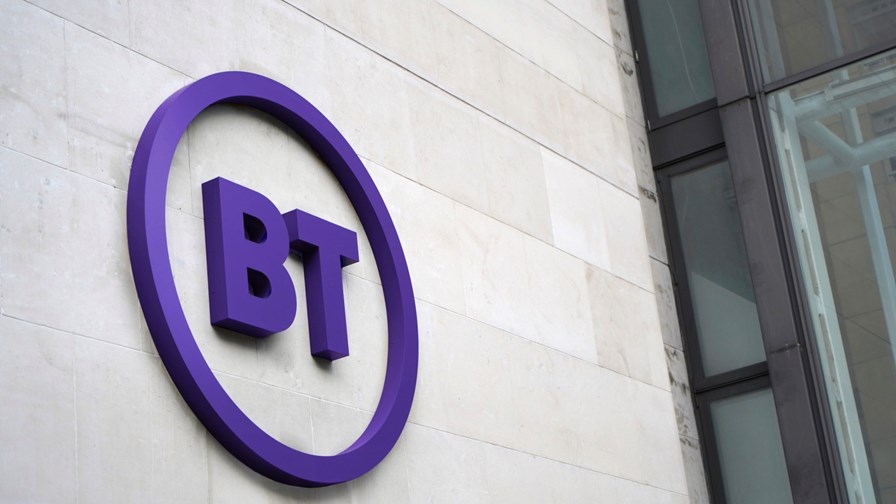
- BT’s fixed access unit is growing in terms of sales and fibre reach
- And new cost analysis prompts BT to scrap its search for a FTTP investment partner
- However... half-year group results dragged down by Enterprise and Global units
- Patrick Drahi is still waiting in the wings
Openreach should go into the decorating business, because it's proving very good at glossing over the cracks at BT.
The UK incumbent's shares rose by more than 11% on Thursday to 158 pence on the London Stock Exchange when it rewarded shareholders' patience by reinstating its dividend after an 18-month hiatus. That, combined with the success of its cost-cutting programme and the aforementioned strong first half from Openreach – which is doing so well with its fibre deployment it is no longer looking for the investment partner it was seeking only six months ago – made for a good show of strength.
That show of strength is important because next month BT could find itself subject to a takeover bid from Patrick Drahi, the billionaire owner of European operator Altice, which currently owns a 12.1% stake in the UK operator.
First the fibre: Openreach's network now covers almost 6 million premises, and as expected, it has been able to lower the average build cost by 15 percent to £250-£350 per premises passed. In addition, more than 1 million homes and businesses are now live on the network.
In light of this strong performance, BT revealed it is no longer exploring the possibility of establishing a joint venture to fund some of its fibre rollout. Back in May, BT raised its FTTP coverage target from 20 million to 25 million premises by December 2026. It said at the time it was open to forming a joint venture to help fund its lofty ambitions.
"We've done a lot of work on the potential joint venture, including discussions with prospective investors," said BT CEO Philip Jansen, in prepared remarks shared by the company ahead of its results call. "But with FTTP build costs coming down and take-up ahead of expectations, we think that the best decision for shareholders is to retain 100 percent of the project and its returns."
The other highlight of BT's first half was of course its aggressive cost-reduction programme. As previously reported, BT hit its £1 billion cost-cutting target 18 months ahead of schedule at a cost of £571 million. It has now brought forward its target of saving £2 billion per year to 2024 instead of 2025. Meanwhile, the success of its fibre deployment means it now expects capex to peak at £4.8 billion in 2023, down from its earlier forecast of £5 billion. BT also confirmed its full year 2022 and 2023 guidance.
"Looking further out, as we pass the peak of our fibre build and move towards an all-fibre, all-IP network, we expect a reduction in capex of at least £1 billion and lower operating costs of £500 million. From these two factors alone, by the end of the decade we expect an expansion of at least £1.5 billion in normalised free cash flow compared to FY22, and that's before any benefits from increased revenue and further transformation efficiencies," Jansen said, in a separate statement.
In the meantime, shareholders have been rewarded for their faith with an interim dividend of 2.31p per share.
All of this helps BT to demonstrate to investors that it is strong enough to defend against any potential takeover bid that might come from Drahi and that the company is in the best and most capable hands right now – ‘Trust us and we’ll do right by you’ appears to be the current message to investors.
But Drahi is shrewd: The businessman surprised everyone in June when his investment vehicle Altice UK took a 12.1% stake in BT. Altice said at the time it supported BT's current board, management and strategy, and that it did not (currently) intend to launch a takeover bid. (See Drahi’s Altice grabs 12.1% chunk of BT.)
That said, under London Stock Exchange rules, Altice was not allowed to acquire any more shares for six months, so at that time there was never the possibility of a bid being made. That six months comes to an end in December, at which point all eyes will be on Altice in anticipation of what it may or may not do next (and what BT’s share price will be by then – Jansen will be busting a gut to get it above the 200 pence mark...).
But the CEO has ongoing problems to deal with: The strong showing from Openreach, the success of the cost saving plan, and the return of the dividend could not completely make up for what was a fairly uninspiring set of first-half financials from BT.
Group revenue for the six months to 30 September dipped 3 percent year-on-year to £10.3 billion. The main culprit was BT's perpetually-troubled international networking, cloud and security services arm, Global, which saw turnover tumble 14 percent to £1.7 billion. Enterprise revenue fell five percent to £2.6 billion, while sales at BT’s Consumer division – which encompasses mobile operator EE as well as its fixed broadband and TV operations – were flat at £4.9 billion for the six-month period.
Openreach was the bright spot, obviously, turning over £2.7 billion, up 5 percent year-on-year. The decline in group revenue was offset by lower costs, meaning adjusted EBITDA was more or less flat at £3.7 billion. Higher financing costs meant pre-tax profit fell five percent to just over £1 billion.
No doubt there is a certain French billionaire businessman going over these numbers with a fine-tooth comb – roll on December!
- Nick Wood, reporting for TelecomTV
Email Newsletters
Sign up to receive TelecomTV's top news and videos, plus exclusive subscriber-only content direct to your inbox.




